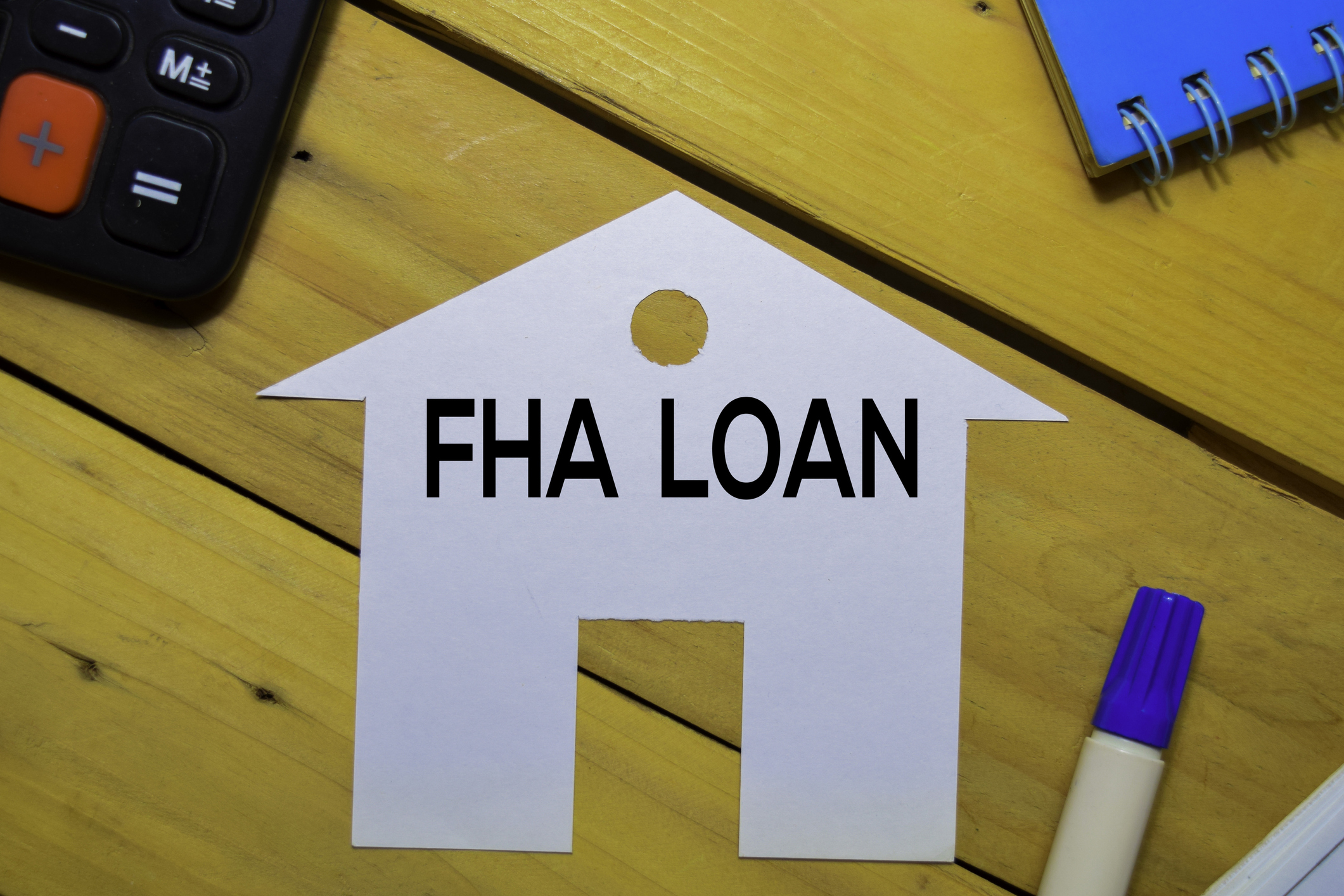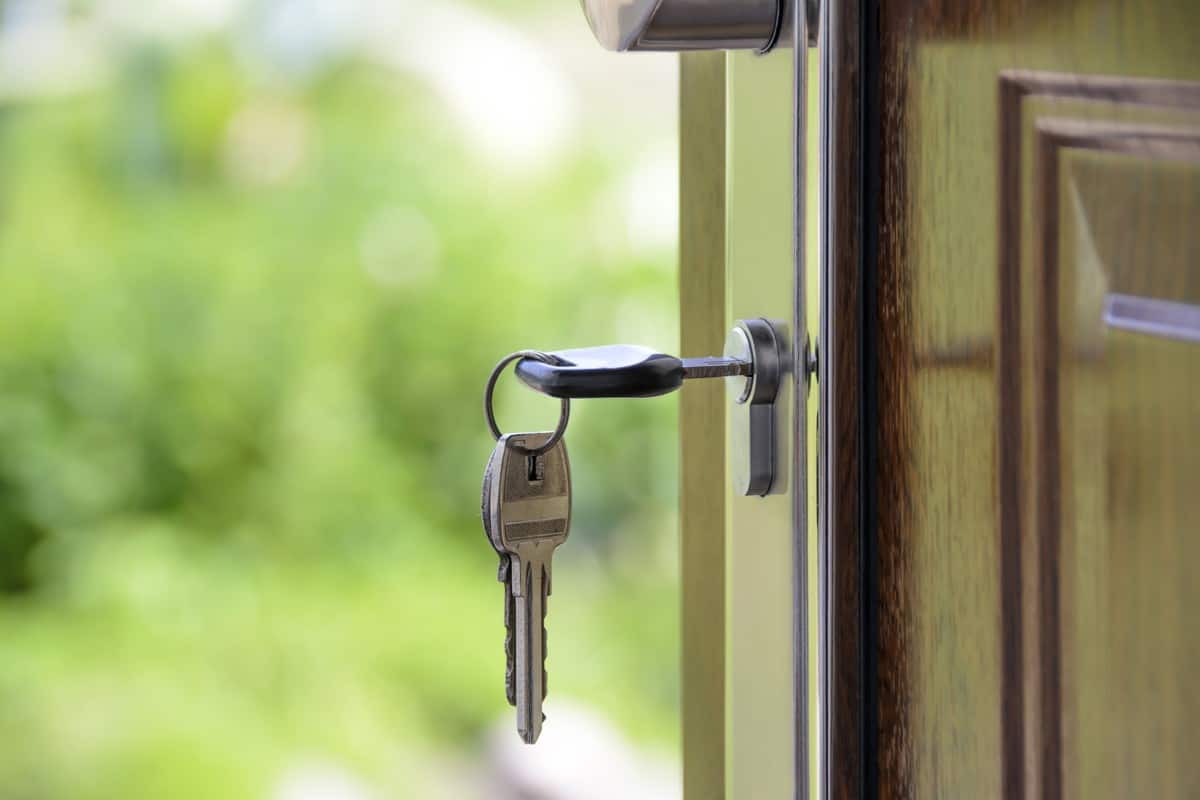The best candidate for an FHA loan is someone who doesn’t quite have 20% saved up for a down payment, but is close. By putting down as much as you can as a down payment, you’re minimizing your monthly mortgage payment and getting a lower interest rate which could get you a monthly payment that is comparable to a conventional mortgage without having to put down the full 20%. If you already have an FHA loan or if an FHA loan is the best financial option for you right now, you can always refinance out of your FHA loan and get a conventional loan when the timing is right.
Is an FHA Loan Right for you?
Buying a home seems like a daunting task. It is something that is usually associated with adulthood because houses are not cheap, which means that a lot of money had to have been saved up in order to make this purchase. That means you either have a great job that pays very well, or you made a series of responsible decisions so that you weren’t frivolous or careless with your spending. For many, life can sometimes get in the way. You could have been saving up for your down payment but someone in your family got sick, and maybe you needed a new car because your old one broke down, etc. For the many first-time home buyers that keep finding themselves in this type of situation, buying a home does not have to be a day dream. You can still purchase a home with less than 20% down with an FHA loan.
What is an FHA Loan?
The FHA (Federal Housing Administration) is an agency within the U.S. Department of Housing and Urban Development that has been helping homeowners buy their homes for many years and is the largest insurer of residential mortgages in the world. It was created in the 1930s as a solution to the foreclosures and defaults in order to provide the mortgage lenders with insurance, which in part helped to stimulate the housing market because it made loans more accessible. The biggest benefit of a nFHA loan is that it gives many people the opportunity to purchase a home, even when they think it is impossible.
How would an FHA Loan help me?
While the recommended amount for a down payment is 20% of the home value, a lot of times people can’t afford it or they would be putting away money for much longer than they would like. 20% of a recommended home value can be a lot of money depending on where you want to live, so saving that much money can take what seems like an eternity. While there are people who are able to wait until they have 20% saved up, there are others who want to buy a home before they reach that point. Maybe they’ve decided that it is the perfect time to start a family so they will be needing more room than what their current living situation offers. An FHA loan can help them achieve that dream.
What’s the Catch?
Because the U.S. Department of Housing and Urban Development insures the loan, the lender can offer the potential homeowner a better deal. An FHA Loan can help homeowners who have as little as 3.5% of the home value and a credit score of 580 or above get a loan for a maximum of $729,750. With this type of loan, however, because it is much more lenient in terms of financial qualification than that of a conventional loan, the borrower is required to get mortgage insurance.
How Will Getting Mortgage Insurance Affect Me?
There are two kinds of mortgage insurance premiums, one that can be paid in full and up front or financed into the mortgage, and a monthly payment. Accurately named, the mortgage insurance that can either be paid in full or financed into the mortgage is called the Upfront Mortgage Insurance Premium (UFMIP). The UFMIP is calculated by taking the amount of the home loan and multiplying it by 1.75%. The other is called the Annual MIP, even though it is a monthly charge that is included into your mortgage payment, and is calculated based on the borrower’s Loan-to-Value (LTV) ratio, loan size, and the length of the loan. In addition to the mortgage insurance premiums, there are other requirements that must be met in order to get an FHA Loan. For loans of $625,000 or less, the annual premiums are:
- 30-year loan, down payment of less than 5 percent: 0.85 percent
- 30-year loan, down payment of 5 percent or more: 0.80 percent
- 15-year loan, down payment of less than 10 percent: 0.70 percent
- 15-year loan, down payment of 10 percent or more: 0.45 percent
FHA Loan Down Payment Requirements
Because an FHA mortgage is so accommodating for people looking to purchase a home, there are a series of requirements that must be met in order to be considered that have been set by the FHA. While having a FICO credit score of 580 qualifies the borrower to put down a minimum of 3.5%, it does not mean that anyone with a score lower than 580 will automatically not be considered as a candidate. You can have a FICO score as low as 500, but that just means that you are required to put a minimum of 10% for a down payment and are not eligible to take advantage of the 3.5% minimum. Also, just because the minimum is 3.5%, it is not a requirement if you qualify for it. The mortgage loan applicant can put down more for their down payment so that they can lower their monthly mortgage payment amount. Similar to other types of mortgages, there are conditions that will determine the interest rates the applicant will receive. For an FHA loan the higher amount the down payment is, the lower the interest rate will be and vice versa.
FHA Loan Qualifications
New FHA Loans must be for a primary residence (they can be used for 1-4 unit properties) and must be appraised by an FHA-approved appraiser and meet the minimum standards at the time of appraisal. If the home you wish to purchase does not meet the minimum standards and the seller is not willing to help you out and make the required changes, you are the one that is responsible to make the fixes and the house will be held in escrow until they are all complete. Here are additional qualifications that must be met:
- Borrowers are required to have a valid Social Security number, residency in the United States, and be a legal adult and able to sign a mortgage in your state.
- Borrowers must also have a consistent employment history, having worked for the same employer for at least two years, must be two years out of bankruptcy, three years out of foreclosure, and have re-established good credit.
- For bankruptcy and foreclosure, exceptions can be made if there is solid proof that these unfortunate financial incidents were based on circumstances that were out of your control and you have improved your situation and are now in good financial standing.
- Verifiable employment history for the last two years.
- Income is verifiable through pay stubs, federal tax returns and bank statements.
- Loan is used for a primary residence.Property is appraised by an FHA-approved appraiser and meets HUD property guidelines.
- Your front-end debt ratio (monthly mortgage payments) should not exceed 31 percent of your gross monthly income. Lenders may allow a ratio up to 40 percent in some cases.
- Your back-end debt ratio (mortgage, plus all monthly debt payments) should not exceed 43 percent of your gross monthly income. Lenders may allow a ratio up to 50 percent in some cases.
- If you experienced a bankruptcy, you must wait 12 months to two years to apply, and three years for a foreclosure. Lenders may make exceptions on waiting periods for borrowers with extenuating circumstances.
It is also worth noting that those servicing the FHA loan can offer flexibility on the FHA loan requirements to those who have suffered a financial hardship in the form of a temporary period of forbearance, a loan modification, deferring part of the loan balance with no interest or extending the payback period.
Additional Benefits of an FHA Loan
Another benefit of an FHA Loan is that it is an assumable mortgage. An assumable mortgage means that if you were to sell your home, the buyer can take over your loan with very little change in terms, even interest rate. It is as if the buyer took out the loan themselves since they are continuing to make all of the future payments on the loan. This can be beneficial to the buyer if for example, the current market rate is on the higher end but the seller’s mortgage interest rate is much lower, or if the rate on the loan is lower than what the seller is able to get, based on their credit history. There are also fewer closing costs involved when a mortgage is assumed, which means more savings for the buyer. In fact, FHA lenders are limited to the amount they can charge in closing costs, only charging no more than 3-5% of the loan amount in closing costs. Having an assumable mortgage has also been used as a strategy in selling the home because not all mortgages are assumable (only some FHA loans and VA loans are assumable), and it makes the home look more desirable in comparison to the other homes on the market.
2020 FHA loan limits
The FHA loan limits for most of the country is $331,760, but for high-cost areas, it is capped at $765,600. This is updated each year due to changing home prices and they are required by law to adjust these amounts based on the loan limits set by the FHFA (Federal Housing Finance Agency).
Comparing FHA Loans to a Conventional Loan
Unlike FHA loans, conventional loans are not insured by the government. Qualifying for a conventional mortgage requires a higher credit score, solid income and a down payment of at least 3 percent for certain loan programs. When looking at some of the high level qualifications of both an FHA loan vs. a Conventional Loan, it’s easy to see the pros and cons of each.
- With an FHA loan, borrower credit scores can be 500 whereas a conventional loan needs a credit score of 620.
- For a down payment, conventional loans require between 3 to 20% whereas an FHA loan requires 3.5% for credit scores of 500+ and 10% down for credit scores of 500 or more.
- The loan terms of FHA loans are only offered at 15 or 30 years, wheres conventional loans can be all types of years.
- For PMI, a conventional loan has between 0.55% to 2.25% while an FHA loan requires an upfront premium of 1.75% of the loan amount and an annual premium of 0.45% to 1.05%.
- A fixed rate interest is only offered for an FHA loan, whereas you can get both a fixed an variable interest rate with an FHA loan.
Who is the Best Candidate for a FHA Loan?
The best candidate for an FHA loan is someone who doesn’t quite have 20% saved up for a down payment, but is close. By putting down as much as you can as a down payment, you’re minimizing your monthly mortgage payment and getting a lower interest rate which could get you a monthly payment that is comparable to a conventional mortgage without having to put down the full 20%. If you already have an FHA loan or if an FHA loan is the best financial option for you right now, you can always refinance out of your FHA loan and get a conventional loan when the timing is right.
Overall Thoughts
While an FHA Loan has a plethora of benefits for homeowners, there are some things that you should know before getting one. While the down payment that is required for an FHA loan is considerably lower than a down payment for a conventional loan, when factoring in the mortgage insurance premiums the monthly payments could end up being more expensive than a conventional loan with a higher interest rate. The assumable mortgage quality also has its perks, but it comes with its own set of warnings. Just because a buyer is assuming a mortgage, it does not mean that they’re assuming everything. The seller could be selling their home for a much higher price than what they bought it for, which would leave the buyer to make up the difference in a large amount of cash upfront or they would have to take out a second mortgage. Also keep in mind that because an FHA loan is assumable, it does not mean that it is mandatory to assume the loan if the seller already has one.



